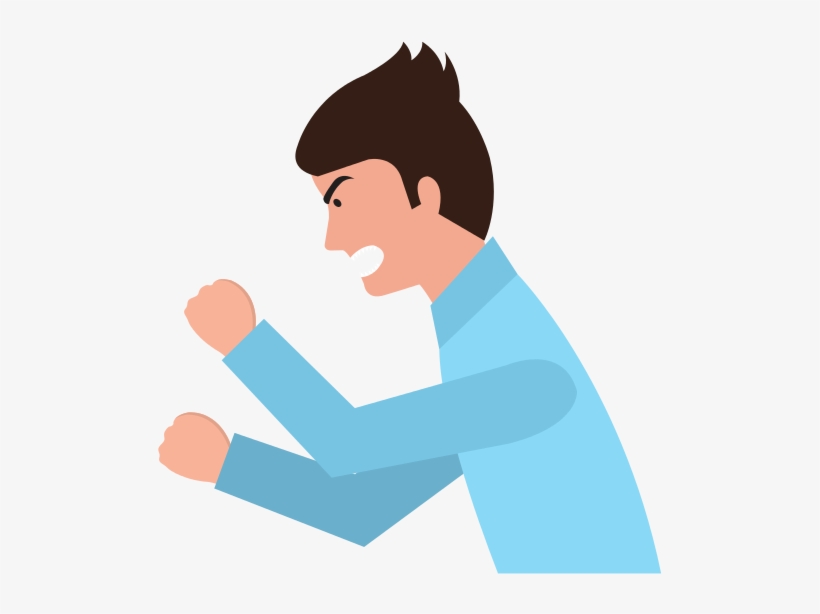Do you feel like you’re always angry? Does it seem like no matter what you do, you can’t calm down? If so, you may be suffering from OCD and anger. This is a condition that affects many people and can cause a lot of problems in your life. In this blog post, we will discuss all OCD and anger. We will talk about the symptoms, how to treat them, and how to cope with them. If you are struggling with this condition, please don’t hesitate to seek help.
Contents
What Is OCD?
 OCD is a mental disorder in which a person has uncontrollable, reoccurring thoughts (obsessions) and behaviors (compulsions) that he or she feels the urge to repeat over and over.
OCD is a mental disorder in which a person has uncontrollable, reoccurring thoughts (obsessions) and behaviors (compulsions) that he or she feels the urge to repeat over and over.
People with OCD can have either obsessions or compulsions, or both. Obsessions are unwanted, intrusive thoughts, images, urges, worries, or doubts that repeatedly appear in your mind. Compulsions are repetitive behaviors that you feel the need to do over and over again, often according to certain “rules.” These behaviors attempt to ward off or neutralize the anxiety caused by your obsessions.
OCD is a chronic condition, meaning it lasts for a long time—usually for years. It usually begins during adolescence or young adulthood but can start in childhood. It affects men, women, and children of all ethnicities equally.
What Is Anger?
 Anger is an emotion characterized by hostility, agitation, frustration, and sometimes violence. Anger can be caused by both internal and external factors. There are three types of anger: passive, aggressive, and assertive. Passive anger is when you bottle up your feelings and do not express them. Aggressive anger is when you express your anger in a destructive or harmful way, either verbally or physically. Assertive anger is when you express your anger in a constructive way that does not hurt yourself or others.
Anger is an emotion characterized by hostility, agitation, frustration, and sometimes violence. Anger can be caused by both internal and external factors. There are three types of anger: passive, aggressive, and assertive. Passive anger is when you bottle up your feelings and do not express them. Aggressive anger is when you express your anger in a destructive or harmful way, either verbally or physically. Assertive anger is when you express your anger in a constructive way that does not hurt yourself or others.
Sometimes there may be also many different thoughts, behaviors, and emotions that can contribute to feeling angry.
How Are OCD And Anger Connected?

People with OCD often have difficulty managing their anger. Research has shown that people with OCD are more likely than the general population to experience problems with anger. One study found that nearly half of all people with OCD met the criteria for an anger disorder. Moreover, people with OCD are more likely to experience chronic and severe forms of anger than those without OCD.
There are a few different ways in which OCD and anger can be connected.
First, obsessions can lead to feelings of frustration and irritation. For example, if you are obsessively worried about getting sick, you may become frustrated when you cannot control your thoughts or behaviors. There may be also many different thoughts, behaviors, and emotions that can contribute to feeling angry.
Second, compulsions can be frustrating and time-consuming. For example, if you feel the need to wash your hands over and over again, this may take up a lot of time and energy. This can lead to feelings of frustration and anger. It may also be difficult to do other things that you enjoy, such as spending time with friends or going to work.
Third, people with OCD often have difficulty managing their emotions. This can lead to feeling overwhelmed by emotions, including anger. When people are unable to cope with their emotions, they may lash out in anger. Moreover, people with OCD may also be more likely to experience anxiety and depression, which can also contribute to feelings of anger.
Fourth, people with OCD may also have difficulty managing their emotions in general. This means that they may have a hard time identifying and expressing their emotions. This can lead to feeling out of control, which can be very frustrating and overwhelming. When people are unable to express their emotions, they may lash out in anger.
Negative Impacts of OCD And Anger

There are many negative impacts of OCD and anger. One of the most significant is the impact on relationships. When someone is consumed by OCD, they can be very irritable and short-tempered. This can lead to arguments and conflict with friends, family, and romantic partners. Additionally, OCD can cause a person to withdraw from social activities and isolate themselves. This can further damage relationships and lead to feelings of loneliness and isolation.
Another negative impact of OCD and anger is the toll it takes on a person’s mental health. Anger can trigger or worsen anxiety and depression symptoms. It can also make it difficult to concentrate or focus on tasks, which can impact work or school performance. Additionally, angry outbursts can lead to problems with impulse control, leading to risky or harmful behaviors.
Another negative impact can also be a physical one. When a person is frequently angry, it can lead to high blood pressure and an increase in heart rate. This can put a strain on the heart and other organs, and over time, can lead to serious health problems. Additionally, chronic anger can lead to headaches, stomach problems, and sleep issues.
If you or someone you know is struggling with OCD and anger, it’s important to seek professional help. A mental health professional can provide treatment that can help manage symptoms and improve quality of life. If you are struggling with OCD or anger, please reach out for help.
Treatment of OCD And Anger?

The treatment of OCD and anger usually consists of medication and therapy.
The most common type of medication prescribed for OCD is a selective serotonin reuptake inhibitor (SSRI). This class of drugs helps to increase levels of serotonin in the brain, which can help to reduce anxiety and improve mood. Sometimes these medications also need to be combined with other types of drugs, such as antipsychotics or mood stabilizers.
Cognitive behavioral therapy (CBT) is the most common type of therapy used to treat OCD. This form of therapy helps people to change their thinking patterns and behaviors that contribute to their OCD. In CBT, people learn how to identify and challenge their negative thoughts, as well as how to practice exposure and response prevention (ERP). ERP is a key part of CBT for OCD and involves gradually exposing oneself to situations that trigger OCD symptoms while learning ways to prevent oneself from engaging in compulsive behaviors.
Many self-care strategies can also help manage OCD and anger. Some self-care tips that may be useful include:
- Identifying and avoiding triggers
- Practicing relaxation techniques
- Exercising regularly
- Eating a healthy diet
- Getting enough sleep
- Avoiding alcohol and drugs
These are only a few of the many different treatment options and self-care strategies that are available for people with OCD and anger. It is important to work with a mental health professional to create a treatment plan that is tailored to your unique needs and situation. With the right treatment, most people with OCD can learn to manage their symptoms and live full, productive lives.
Conclusion
All in all, it is important to understand that both OCD and anger can be valid and real experiences. It is also crucial to know that they do not have to be mutually exclusive; one can experience both at the same time. What matters most is how you deal with them. If you find that your OCD or anger is starting to impact your life negatively, please reach out for help. There are many resources available to you, and there is no shame in seeking assistance. Remember: you are not alone.
Many helpful coping mechanisms can be utilized to manage both OCD and anger. People use these techniques to live more balanced and fulfilling lives, despite having these conditions. Some examples of coping mechanisms include therapy, medication, relaxation techniques, support groups, and self-care. Again, if you find that either OCD or anger is starting to take a toll on your life, please do not hesitate to seek professional help. It could be the best decision you ever make.
Your mental health — Your psychological, emotional, and social well-being — has an impact on every aspect of your life.
Hope this article was of help to you! If you are suffering from OCD and anger, you may seek help from Therapy Mantra. We have a team of highly trained and experienced therapists who can provide you with the tools and skills necessary for overcoming OCD and anger. Contact us today to schedule an online therapy or download our free OCD treatment app on Android or iOS for more information.


